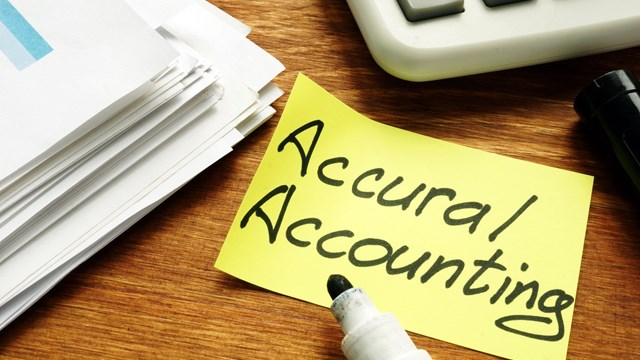
While it's pretty much impossible for a condo board, HOA or an employee thereof to commit fraud on the scale of a Bernie Madoff or any one of the greed-driven shysters who have made headlines in recent years, building boards and managers certainly aren’t above scrutiny when it comes to shady business practices. Building administrators are in positions of authority and handle large sums of money—often without a lot of supervision or oversight. Fraud and financial mismanagement in a residential building community can have devastating effects on residents and property alike, but it’s more than just money; the dishonesty creates a breach of trust that can be very hard to repair.
One of the advantages of multifamily housing is that by pooling resources, a group of people has orders of magnitude more purchasing power than they would individually. Only the mega-rich could buy a condominium or townhouse building outright. A potential downside of this arrangement is that the aforementioned pool of resources may be very deep. The notorious bank robber Willie Sutton, asked why he robbed banks, said, “That’s where the money is.” Well, that’s true of condos and HOAs, too.
Fraud tends to happen when one player amid a larger community acquires a disproportional amount of power. “A common sign is when authority is concentrated in one person with no oversight,” says Frank A. Lombardi, Esq., a partner with the law firm of Goodman, Shapiro & Lombardi LLC in Lincoln, Rhode Island. “This can result in skimming off the top, wherein that person takes a piece of the action directly from the vendor for themselves.”
How can you spot financial shenanigans—or just plain, honest mistakes? And what should you do if you suspect someone of shady dealings? Let’s take a look.
Kickback, But Don't Relax
Say a vendor puts in a bid to win a job installing new windows in your high-rise co-op building. It’s a lucrative contract, so to sweeten the pot and make sure the job gets sent his way, said vendor pads his bid by $2,000—and promises to kick that sum back to the board president once the ink has dried on the contract. This scenario is known as a ‘kickback,’ and it’s among the more popular forms of malfeasance.
“I’ve seen this happen more between vendors and management companies,” acknowledges Gary Daddario, an attorney and partner with the law firm of Winer and Bennett LLP in Tyngsboro, Massachusetts. “And it tends not to happen were the board to engage more directly in transactions, unless the board in and of itself is corrupt. But a property manager may hypothetically receive an invoice for $5,000 from a vendor, and report it back to an association at $7,000, to pay themselves an additional $2,000. Or they’ll work with the vendor to overcharge and split the profits. This, and associations being victimized from maintenance bills for work that either hasn’t been done, greatly exaggerated or inflated in price, are the two types of frauds I’ve seen on a repetitive basis.”
And The Condo Queens’ Karen P. Sackstein, a CPA with her own practice in Fair Lawn, New Jersey, asserts that boards can be as complicit in this type of fraud as management: “Any position with the authority to approve vendor contracts or invoices can be subject to fraud in a kickback scheme between a vendor and another board member and/or property manager,” Sackstein says.
Kenneth R. Friedman, a CPA and a partner with the accounting firm of Friedman, Feldmesser & Karpeles, CPA LLC in Jupiter, Florida, agrees. “While the treasurer and bookkeeper are the people typically in the best position to perpetrate the fraud because of their access to and involvement with the association’s accounting records, it really can be accomplished by any board member, since all will typically have check-signing abilities,” he says.
Kickbacks require the cooperation of vendors, but other forms of fraud are more self-contained. One of these is the so-called kiting scheme, which involves a delicate dance of bank account transfers.
“If there’s a transfer out, there should be a transfer in on the same day,” says Jayson Prisand, a CPA and a partner with the accounting firm of Prisand, Mellina, Unterlack & Co., LLP in Plainview, New York. “If it’s done by check, that check should be deposited fairly quickly. One scheme that we’ve seen with an agent was, they were transferring money from building A’s operating account, not to building A’s reserve account, but to building B’s reserve account. And then it went from building B to building C, and there were ways that they were shorting some money, and trying to cover it up with these transfers.” The fraudsters were taking advantage of the ‘float,’ the period of time where there appears to be money in an account that actually isn’t there. “It’s about dates and timing. When you get towards the fiscal year end, what could happen with an agent is, let’s say they have December year-end clients. So the balance sheet is a picture… it’s a snapshot of a point in time, like December 31st. So, say that building A has a December year-end and building B has a March year-end. Well, they don’t necessarily look as closely at building B in December, so you could borrow some money from building B to prop up building A, and then pay it back.”
Check and Double Check
Not all check fraud is this elegant. Some of the more creative criminals pay people who don’t exist. “A lot of times there is payroll fraud, where there are ‘ghost’ employees put on the payroll, or there are additional hours put down for an employee, et cetera,” says Arlen S. Lasinsky, CPA, CFE, CFF, CVA, CTP, and a director of Marcum LLP, a national accounting firm that also has offices in China and Grand Cayman. “For example: I’m the treasurer, and we’re self-managed. We have employees on our staff, and I do the payroll. I would never put my own name on the payroll, but if there’s a lack of oversight, why can’t I put ‘John Doe,’ or my wife’s name, or some other name? Who’s going to know? If I get that payroll check, or the money goes into my account, nobody is going to know first-hand that it happened. Now, there are ways of finding out, but no one is going to know first-hand.”
This doesn’t take into account more minor offenses, like over-ordering supplies and stealing them, or just lifting the occasional twenty from the petty cash box.
“With garden-variety embezzlement, someone will simply take association funds and convert them to personal use,” says Lombardi. “People in a position of trust are in the best positions to steal, and their victims will often be surprised to discover a theft perpetrated by someone to whom they were so close.”
Restoring Justice
With all this theft going on, it’s a wonder anyone ever gets paid. Fortunately, there are mechanisms to root out wrong-doing and restore justice to the building.
“The most important thing that board members can do to eliminate fraud is to obtain and review invoices,” says Daddario. “Not to get down on management companies, but, occasionally, with one in place, a board can get complacent. But if the board isn’t at least looking at its invoices, it can’t notice if a price seems out of whack, or if it’s paying for work that hasn’t been done. So that’s step one. And if a board really wants to make an effort, it should be involved in approving the invoices and writing the checks. When I was a board member, we’d require our management team to attend every meeting with invoices in hand; we’d review the notice, and if we approved it, we’d sign the check then and there.”
“As a board member you should be getting a complete financial package every month," says Lasinsky, a forensic accountant and a fraud examination specialist. “That comes from the professional property manager, or it’s done internally because you’re self-managed. And the package should include cash receipts journals, cash disbursements journals, financial statements, general ledger and bank statements.” These documents must be reviewed. “The bottom line is that, if I’m a board member and I see that there are checks made out to vendors that I’m not familiar with… that’s a red flag. If I see amounts that don’t really correspond to a budget… that’s also a potential issue.”
Of course, not all potential issues are indicators of fraud. “When we find something suspicious, the first thing we do is try to figure it out with management,” says Prisand, “Sometimes errors do happen. As auditors, we come in after the fact and we have to make a judgment call, whether it truly was an error or we suspect a pattern. Depending on the situation we would then proceed to the board to question what’s going on, or if they’re aware of certain transactions. Depending on what happens, the board at that point could go to the authorities, particularly if we think funds have been misappropriated or stolen.”
“Maintain proper segregation of duties, require two signatures on all checks over a certain dollar amount and for all reserve expenditures, required sealed bids for large projects from several vendors, ensure that signature cards for all bank accounts are current, regularly review financial information and obtain timely response for any unusual transactions, and of course use an experienced, industry specific CPA firm to conduct your annual audit and to provide professional assistance as matters arise during the year,” Sackstein advises.
And Lombardi urges that, for the best protection (quoting former Hollywood cowboy and then-President Ronald Reagan, while dealing with the Soviets regarding nuclear weapon disarmament): “Trust... but verify.”
Greg Olear is a freelance writer and a frequent contributor to New England Condominium. Staff writer Michael Odenthal contributed to this article.






Leave a Comment